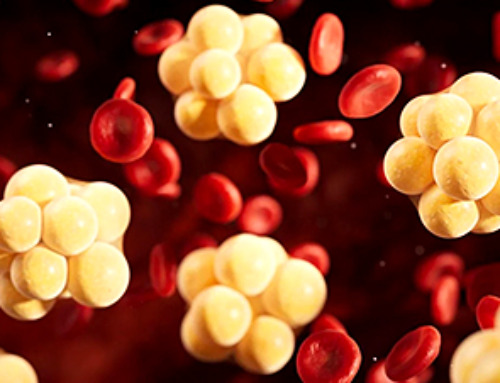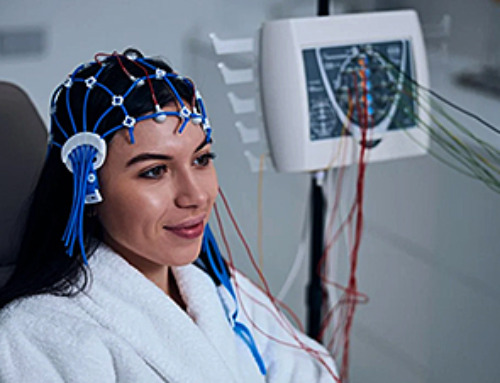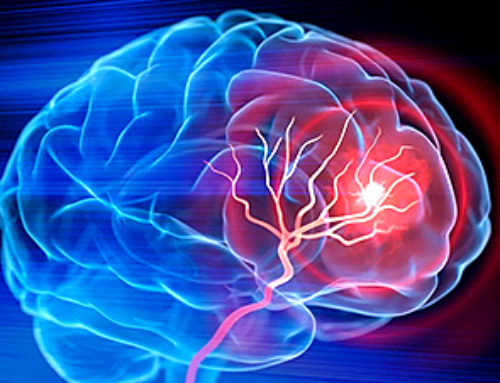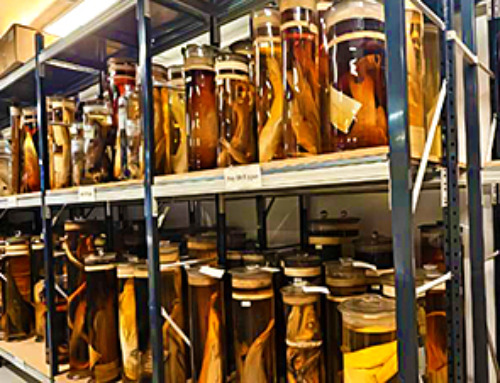Research indicates that COVID-19 survivors face doubled risks of severe cardiac events for years after recovery, especially if hospitalized.
People with A, B, or AB blood types are particularly vulnerable, highlighting the need for personalized approaches to heart health post-COVID.
COVID-19 and Cardiovascular Risk
A history of COVID-19 can double the risk of heart attack, stroke, or death, according to new research led by Cleveland Clinic and the University of Southern California.
The study revealed that individuals with any type of COVID-19 infection were twice as likely to experience a major cardiac event, such as a heart attack, stroke, or death, for up to three years following their diagnosis. This risk escalated significantly for patients who were hospitalized for COVID-19, surpassing even the influence of a previous history of heart disease.
Genetic Factors and COVID-19 Complications
Further genetic analysis indicated that individuals with non-O blood types (such as A, B, or AB) were twice as likely to suffer a severe cardiovascular event after COVID-19 compared to those with type O blood.
Published on October 9 in the journal Arteriosclerosis, Thrombosis, and Vascular Biology, the researchers used UK Biobank data from 10,005 people who had COVID-19 and 217,730 people who did not get infected between February to December 2020.
Global Implications of Cardiac Risks Post-COVID
"Worldwide over a billion people have already experienced COVID-19. The findings reported are not a small effect in a small subgroup," said co-senior study author Stanley Hazen, M.D., Ph.D., chair of Cardiovascular and Metabolic Sciences in Cleveland Clinic's Lerner Research Institute and co-section head of Preventive Cardiology. "The results included nearly a quarter million people and point to a finding of global healthcare importance that promises to translate into a rise in cardiovascular disease globally."
Certain genetic variants are already linked to coronary artery disease, heart attack and COVID-19 infection. The researchers completed a genetic analysis to see if any of these known genetic variants contribute to elevated coronary artery disease risk after COVID-19. None of the known genetic variants were drivers of the enhanced cardiovascular events observed post COVID-19. Instead, the data highlighted an association between elevated risk and blood type.
Research Findings and Future Directions
Previous research has shown that people who have A, B, or AB blood types were also more susceptible to contracting COVID-19.
"These findings reveal while it's an upper respiratory tract infection, COVID-19 has a variety of health implications and underscores that we should consider history of prior COVID-19 infection when formulating cardiovascular disease preventive plans and goals," said Dr. Hazen.
"The association uncovered by our research indicates a potential interaction between the virus and the piece of our genetic code that determines blood type and signals the need for further investigation," said Dr. Hazen. "A better understanding of what COVID-19 does at the molecular level may potentially teach us about pathways linked to cardiovascular disease risk."
Hooman Allayee, PhD, of USC's Keck School of Medicine, was co-senior author of the paper.
"Our data suggesting that risk of heart attacks and strokes was especially higher among COVID-19 patients with A, B, or AB blood types has significant clinical implications," Dr. Allayee said.
"Given our collective observations and that 60% of the world's population have these non-O blood types, our study raises important questions about whether more aggressive cardiovascular risk reduction efforts should be considered, possibly by taking into consideration an individual's genetic makeup."
The findings show that the long-term risk associated with COVID-19 "continues to pose a significant public health burden" and that further investigation is needed, according to the authors.
For more on this research, see How COVID Continues to Threaten Your Heart Years After Infection.
Reference: "COVID-19 Is a Coronary Artery Disease Risk Equivalent and Exhibits a Genetic Interaction With ABO Blood Type" 9 October 2024, Arteriosclerosis Thrombosis and Vascular Biology.
DOI: 10.1161/ATVBAHA.124.321001
This work was supported by the National Institutes of Health [R01HL148110, R01HL168493, U54HL170326, P30ES007048, R01DK132735, P01HL147823 and R01HL147883].
Disclosures: Dr. Hazen is named as co-inventor on pending and issued patents held by Cleveland Clinic in relation to cardiovascular diagnostics and therapeutics.
News
New Drug Slashes Dangerous Blood Fats by Nearly 40% in First Human Trial
Scientists have found a way to fine-tune a central fat-control pathway in the liver, reducing harmful blood triglycerides while preserving beneficial cholesterol functions. When we eat, the body turns surplus calories into molecules called [...]
A Simple Brain Scan May Help Restore Movement After Paralysis
A brain cap and smart algorithms may one day help paralyzed patients turn thought into movement—no surgery required. People with spinal cord injuries often experience partial or complete loss of movement in their arms [...]
Plant Discovery Could Transform How Medicines Are Made
Scientists have uncovered an unexpected way plants make powerful chemicals, revealing hidden biological connections that could transform how medicines are discovered and produced. Plants produce protective chemicals called alkaloids as part of their natural [...]
Scientists Develop IV Therapy That Repairs the Brain After Stroke
New nanomaterial passes the blood-brain barrier to reduce damaging inflammation after the most common form of stroke. When someone experiences a stroke, doctors must quickly restore blood flow to the brain to prevent death. [...]
Analyzing Darwin’s specimens without opening 200-year-old jars
Scientists have successfully analyzed Charles Darwin's original specimens from his HMS Beagle voyage (1831 to 1836) to the Galapagos Islands. Remarkably, the specimens have been analyzed without opening their 200-year-old preservation jars. Examining 46 [...]
Scientists discover natural ‘brake’ that could stop harmful inflammation
Researchers at University College London (UCL) have uncovered a key mechanism that helps the body switch off inflammation—a breakthrough that could lead to new treatments for chronic diseases affecting millions worldwide. Inflammation is the [...]
A Forgotten Molecule Could Revive Failing Antifungal Drugs and Save Millions of Lives
Scientists have uncovered a way to make existing antifungal drugs work again against deadly, drug-resistant fungi. Fungal infections claim millions of lives worldwide each year, and current medical treatments are failing to keep pace. [...]
Scientists Trap Thyme’s Healing Power in Tiny Capsules
A new micro-encapsulation breakthrough could turn thyme’s powerful health benefits into safer, smarter nanodoses. Thyme extract is often praised for its wide range of health benefits, giving it a reputation as a natural medicinal [...]
Scientists Develop Spray-On Powder That Instantly Seals Life-Threatening Wounds
KAIST scientists have created a fast-acting, stable powder hemostat that stops bleeding in one second and could significantly improve survival in combat and emergency medicine. Severe blood loss remains the primary cause of death from [...]
Oceans Are Struggling To Absorb Carbon As Microplastics Flood Their Waters
New research points to an unexpected way plastic pollution may be influencing Earth’s climate system. A recent study suggests that microscopic plastic pollution is reducing the ocean’s capacity to take in carbon dioxide, a [...]
Molecular Manufacturing: The Future of Nanomedicine – New book from Frank Boehm
This book explores the revolutionary potential of atomically precise manufacturing technologies to transform global healthcare, as well as practically every other sector across society. This forward-thinking volume examines how envisaged Factory@Home systems might enable the cost-effective [...]
New Book! NanoMedical Brain/Cloud Interface – Explorations and Implications
New book from Frank Boehm, NanoappsMedical Inc Founder: This book explores the future hypothetical possibility that the cerebral cortex of the human brain might be seamlessly, safely, and securely connected with the Cloud via [...]
Global Health Care Equivalency in the Age of Nanotechnology, Nanomedicine and Artificial Intelligence
A new book by Frank Boehm, NanoappsMedical Inc. Founder. This groundbreaking volume explores the vision of a Global Health Care Equivalency (GHCE) system powered by artificial intelligence and quantum computing technologies, operating on secure [...]
Miller School Researchers Pioneer Nanovanilloid-Based Brain Cooling for Traumatic Injury
A multidisciplinary team at the University of Miami Miller School of Medicine has developed a breakthrough nanodrug platform that may prove beneficial for rapid, targeted therapeutic hypothermia after traumatic brain injury (TBI). Their work, published in ACS [...]
COVID-19 still claims more than 100,000 US lives each year
Centers for Disease Control and Prevention researchers report national estimates of 43.6 million COVID-19-associated illnesses and 101,300 deaths in the US during October 2022 to September 2023, plus 33.0 million illnesses and 100,800 deaths [...]
Nanomedicine in 2026: Experts Predict the Year Ahead
Progress in nanomedicine is almost as fast as the science is small. Over the last year, we've seen an abundance of headlines covering medical R&D at the nanoscale: polymer-coated nanoparticles targeting ovarian cancer, Albumin recruiting nanoparticles for [...]





















